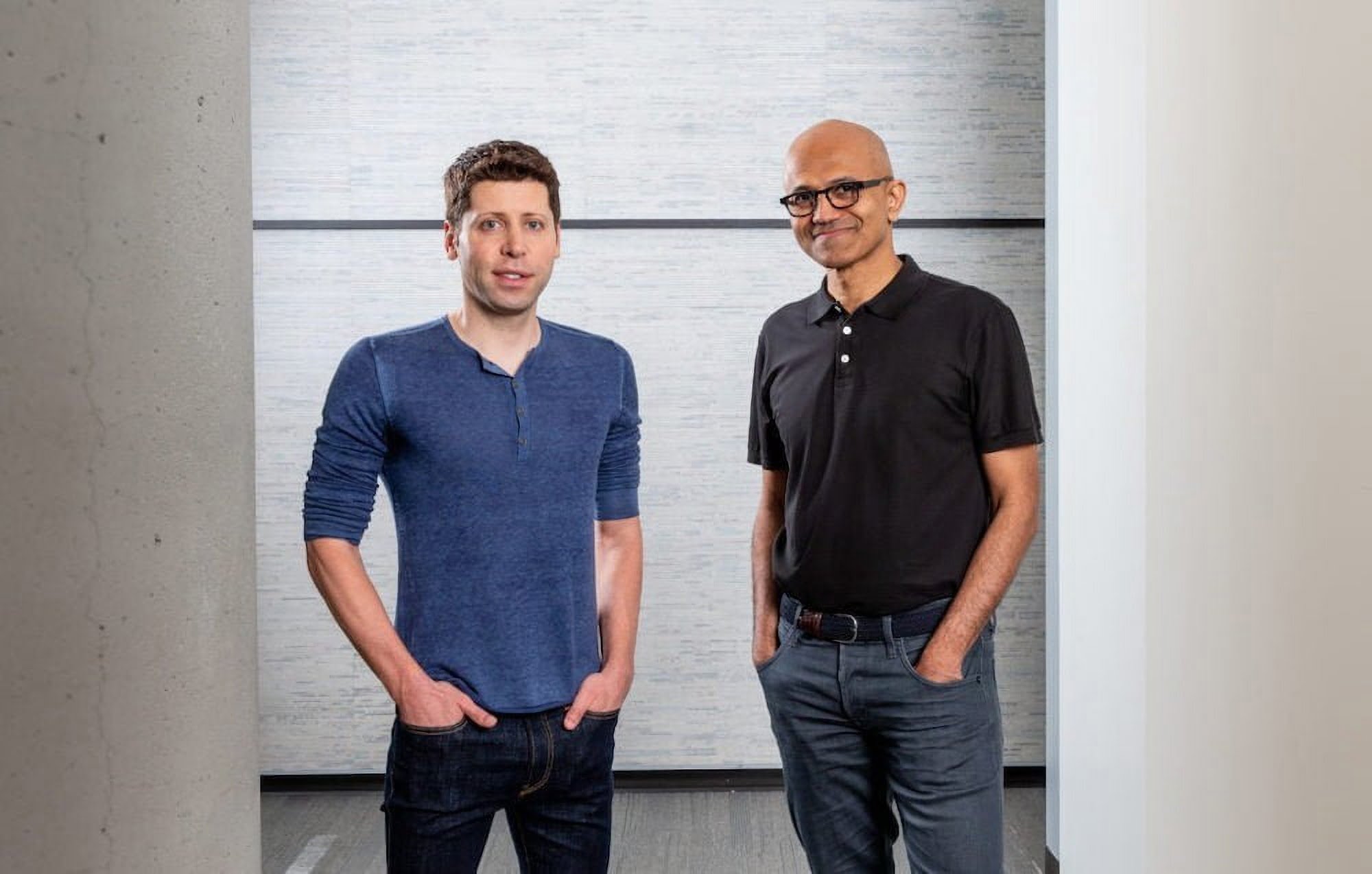Microsoft could sacrifice some OpenAI shares - but wants to secure access to AI technology

Key Points
- OpenAI plans to reorganize its corporate structure and transform the division into a public benefit corporation (PBC) to enable it to go public and raise additional investments. Approval from its main investor, Microsoft, which has invested over 13 billion U.S. dollars in OpenAI, is crucial for this.
- Microsoft has signaled its willingness to relinquish some of its stake but is demanding long-term access to new technologies in return. Failure of the restructuring could lead to investors demanding repayment and hinder OpenAI's growth.
- Despite their close technical cooperation, OpenAI and Microsoft have a tense relationship. OpenAI is developing its own infrastructure with partners like SoftBank and Oracle, and it is competing with Microsoft for corporate customers.
OpenAI is planning a major overhaul of its corporate structure as it prepares for a possible IPO, but its most important backer, Microsoft, is setting conditions—and the relationship remains tense.
The two companies are now locked in negotiations to rewrite their multibillion-dollar partnership. According to the Financial Times, OpenAI wants to convert its for-profit arm into a Public Benefit Corporation (PBC), laying the groundwork for a future stock market debut.
Microsoft has invested more than 13 billion dollars in OpenAI, making it the company’s largest outside investor. Microsoft’s approval is seen as crucial for the restructuring to move forward. At stake is an update to a 2019 agreement—when Microsoft made its first $1 billion investment in OpenAI. That contract covers intellectual property rights, product usage, and revenue sharing, and is set to run through 2030.
Sources familiar with the talks say Microsoft is willing to give up some of its equity in OpenAI’s future PBC, but only if it gets access to new technology even after 2030. Without a deal, OpenAI’s restructuring could collapse—along with its plans to raise more capital or go public. In 2023 alone, OpenAI raised a total of $46.6 billion across two funding rounds, attracting investors like SoftBank, Thrive Capital, and Altimeter Capital. Those investors expect to receive equity once OpenAI transitions to a PBC. If the plan falls apart, they could demand their money back.
From Capped-Profit Model to Public Benefit Corporation
Back in 2019, OpenAI became the first major AI organization to set up a limited partnership with a capped-profit structure: Investors could receive, at most, 100 times their original investment. But by late 2024, it was clear that the model was limiting OpenAI’s ability to raise capital. Insiders warned at the time that moving away from non-profit control could "cost billions". In June 2024, OpenAI announced preliminary plans to turn its for-profit arm into a PBC—a legal structure already used by Anthropic that could formally give Microsoft more influence.
In May 2025, OpenAI unveiled its specific plan: The new PBC will remain under the control of the original non-profit foundation but will drop the capped-profit limit in favor of a traditional share structure. The goal is to eventually raise "hundreds of billions to trillions" of dollars for new data centers.
A Strained Partnership and Growing Competition
Despite a close technical relationship—Microsoft supplies OpenAI with massive computing resources and integrates its models into Microsoft products—the partnership is under strain. OpenAI is increasingly carving its own path. Its Stargate project, built with SoftBank, Oracle, and MGX, is designed to help OpenAI reduce its dependence on Microsoft. Officially, CEO Sam Altman insists the Azure partnership remains central, but insiders say the new compute resources will be exclusive to OpenAI, and key questions about funding and governance are still unresolved.
At the same time, OpenAI is targeting enterprise customers with its own AI products—a market Microsoft is also pursuing.
AI News Without the Hype – Curated by Humans
As a THE DECODER subscriber, you get ad-free reading, our weekly AI newsletter, the exclusive "AI Radar" Frontier Report 6× per year, access to comments, and our complete archive.
Subscribe now